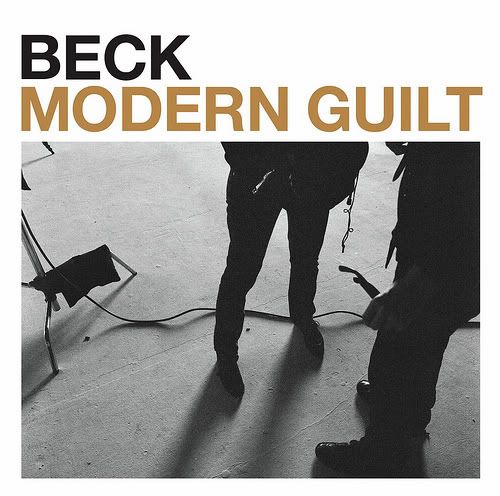 Anytime Beck releases a new album many people can't help but take notice. When your first two albums achieve almost universal critical praise and massive commercial success, there's a level of instant street cred that comes with it and almost never fades. So, in that respect, it will never be hard for him to attract the attention of a wide audience anytime he wants. Most musicians wish they had this 'problem'.
Anytime Beck releases a new album many people can't help but take notice. When your first two albums achieve almost universal critical praise and massive commercial success, there's a level of instant street cred that comes with it and almost never fades. So, in that respect, it will never be hard for him to attract the attention of a wide audience anytime he wants. Most musicians wish they had this 'problem'.Although most of that attention comes with high expectations. Odelay set the bar pretty damn high and many keep expecting Beck to recapture that magic again and again. While his subsequent albums have seen him interpret various genres and influences quite successfully (Mutations, Midnite Vultures, and Sea Change come to mind), none of them have breached the canon of transcendent greatness that Odelay did 12 years ago. In light of this fact, I am left asking the same question I always ask myself whenever it seems like great things are expected of a particular artist. Is this really his fault or is it ours?
It is probably a fair assumption to think Beck never intended to make Odelay the landmark album that it became. Such things tend to happen organically and almost always fail whenever they are attempted by design. So, why are so many people disappointed whenever one of his albums doesn't measure up to that standard?
This week Beck released his eighth studio album, Modern Guilt, and it also falls short of the Odelay standard. But here's the funny thing about greatness, much of it depends on context and in many cases the context matters more than the content. Odelay is no different since its impact on pop music is greatly measured by the fact that nobody had ever heard anything like it before. Without this context, would it really have garnered as much praise as it did?
Probably not. So rather than setup Modern Guilt for almost certain failure before you even hear it for yourself, I will share my thoughts based completely on the music included on the album without making an unfair comparison to Beck's earlier work.
Much of the early buzz about Modern Guilt stemmed from the producer credit. When word got out that Danger Mouse would be collaborating on the album, many expected that it would be a return to the cut-and-paste aesthetic of Beck's earlier work. As it turns out, this isn't what happened at all. Most of Modern Guilt explores dark themes and atmospherics, which shouldn't be a surprise if you are a fan of either artist's work (consider the aforementioned Sea Change and the melancholic production vibe of The Good, The Bad and The Queen as exhibits A and B).
The music is heavy on echoes, syncopated drum loops and chunky guitars, creating a rhythmic foundation that suits Beck's self-doubt and paranoia perfectly. On the title track we hear a very different person than the one who used to sing about "two turntables and a microphone", instead it sounds as if he resents that person altogether ("Modern guilt I'm under lock and key/It's not what I've changed/Turning into convention"). The theme is extrapolated further on "Youthless" where a stuttering guitar rhythm sets the stage for Beck to lament the misplaced idealism of his generation's youth as he sings of turning "emotion into noise" and "trying to re-animate something that you can't understand."
Perhaps it is no coincidence that Danger Mouse's penchant for incorporating 60's psychedelia ("Replica"), surf rock ("Profanity Prayers") and British invasion pop hooks ("Gamma Ray") works so well layered on top of Beck's lyrical delivery. The juxtaposition of these sounds with themes of lost promise and hardened cynicism seem like a tacit admission that Beck's generation failed to change the world and instead ended up making it worse (as the bleak global warming imagery on "Orphans" suggests).
On the closing track "Volcano" Beck seems to leave a glimmer of hope for him and his peers: "I don't know where I've been, but I know where I'm Going/To that volcano/I don't want to fall in though/Just want to warm my bones for a while." While the jury is still out on his generation, I think it's safe to say he's got more than a while before he needs to think about jumping in.



No comments:
Post a Comment